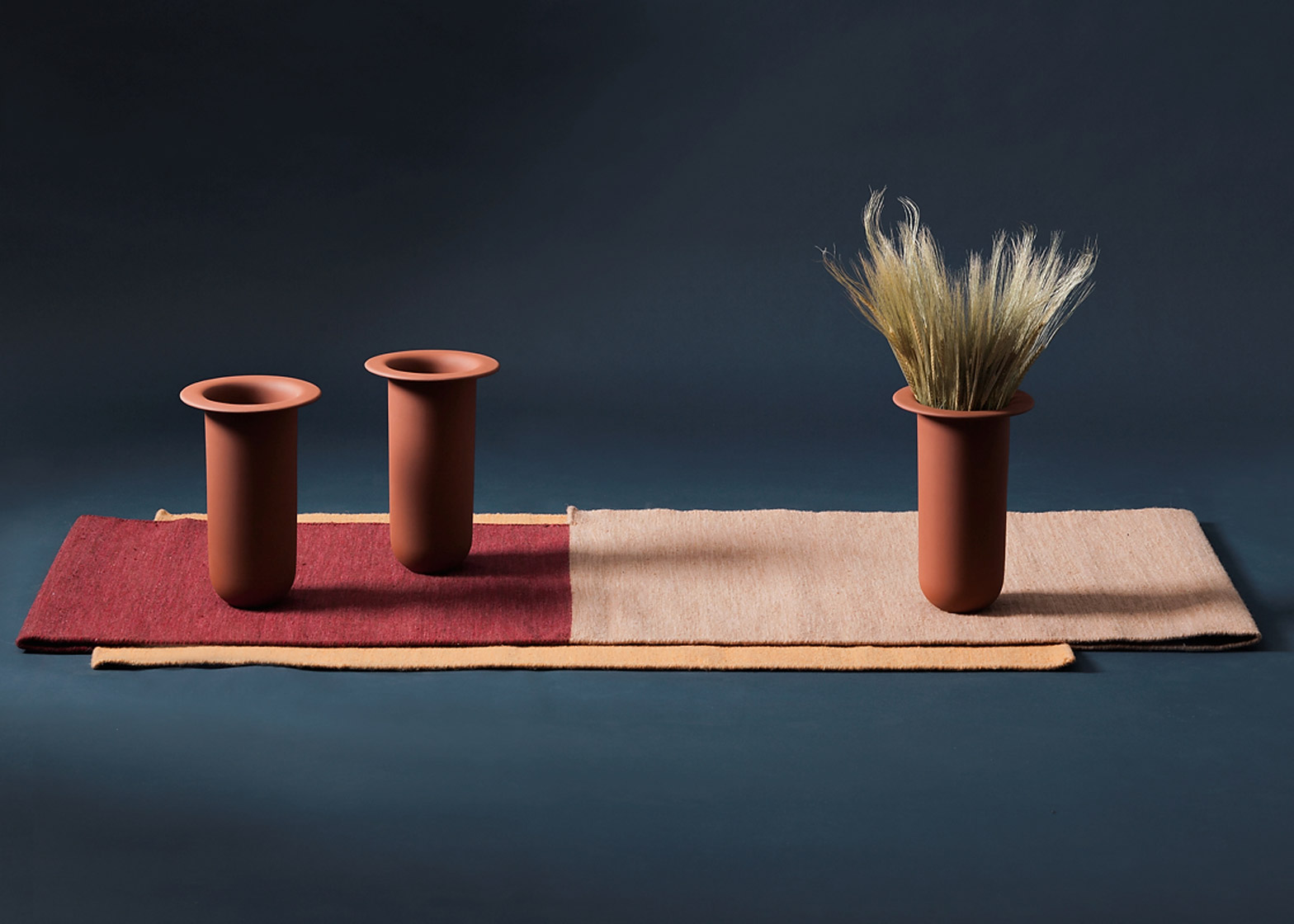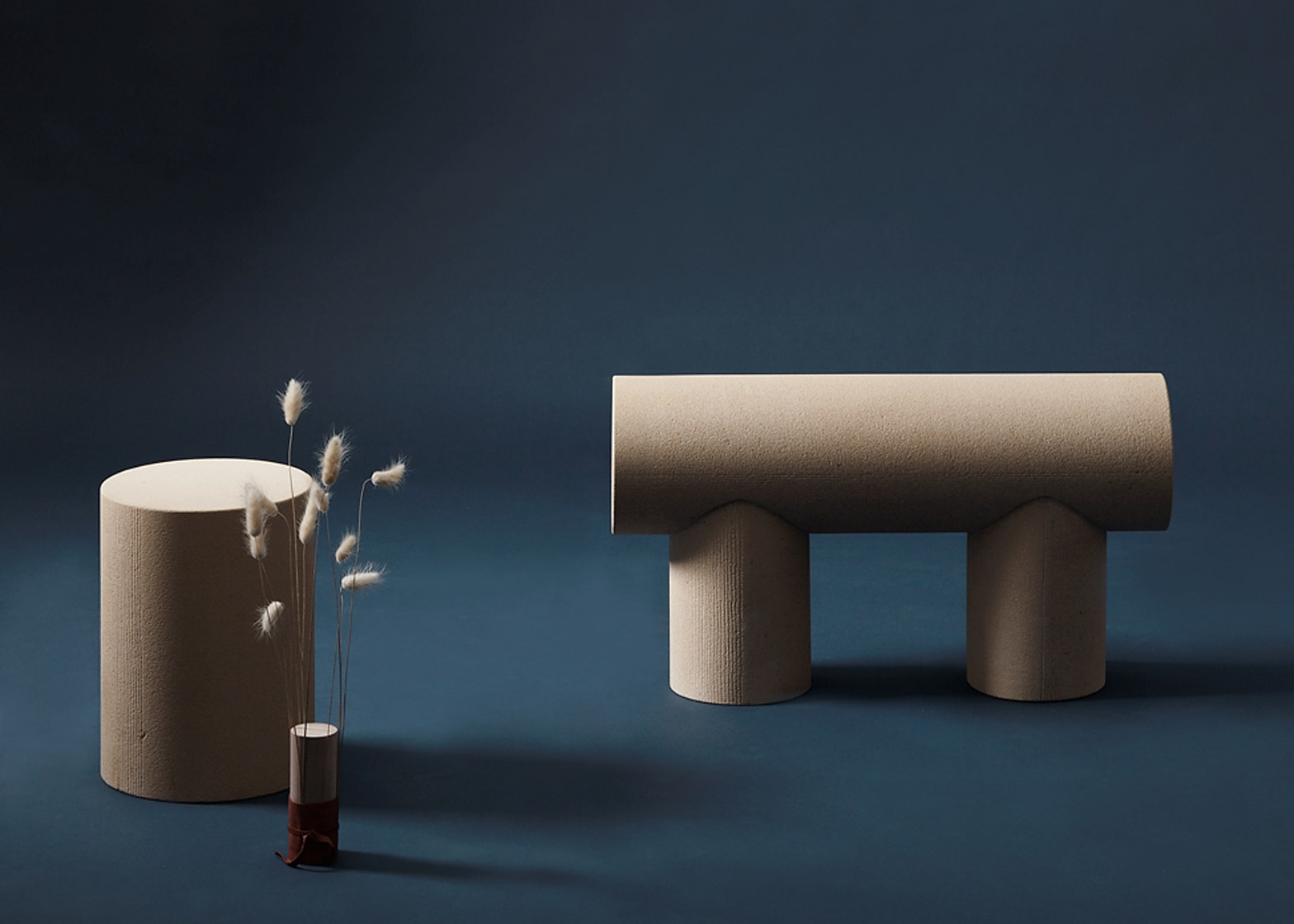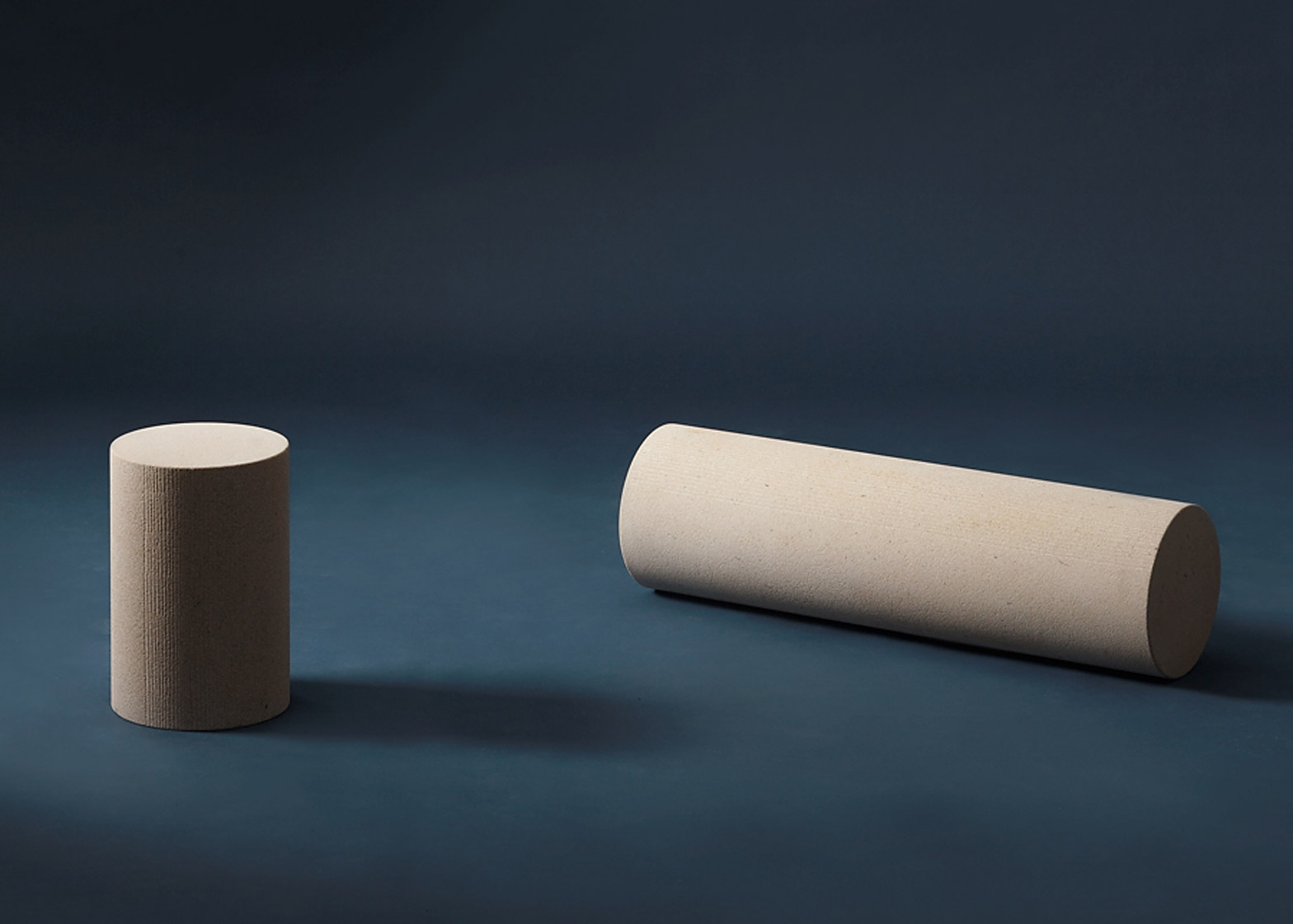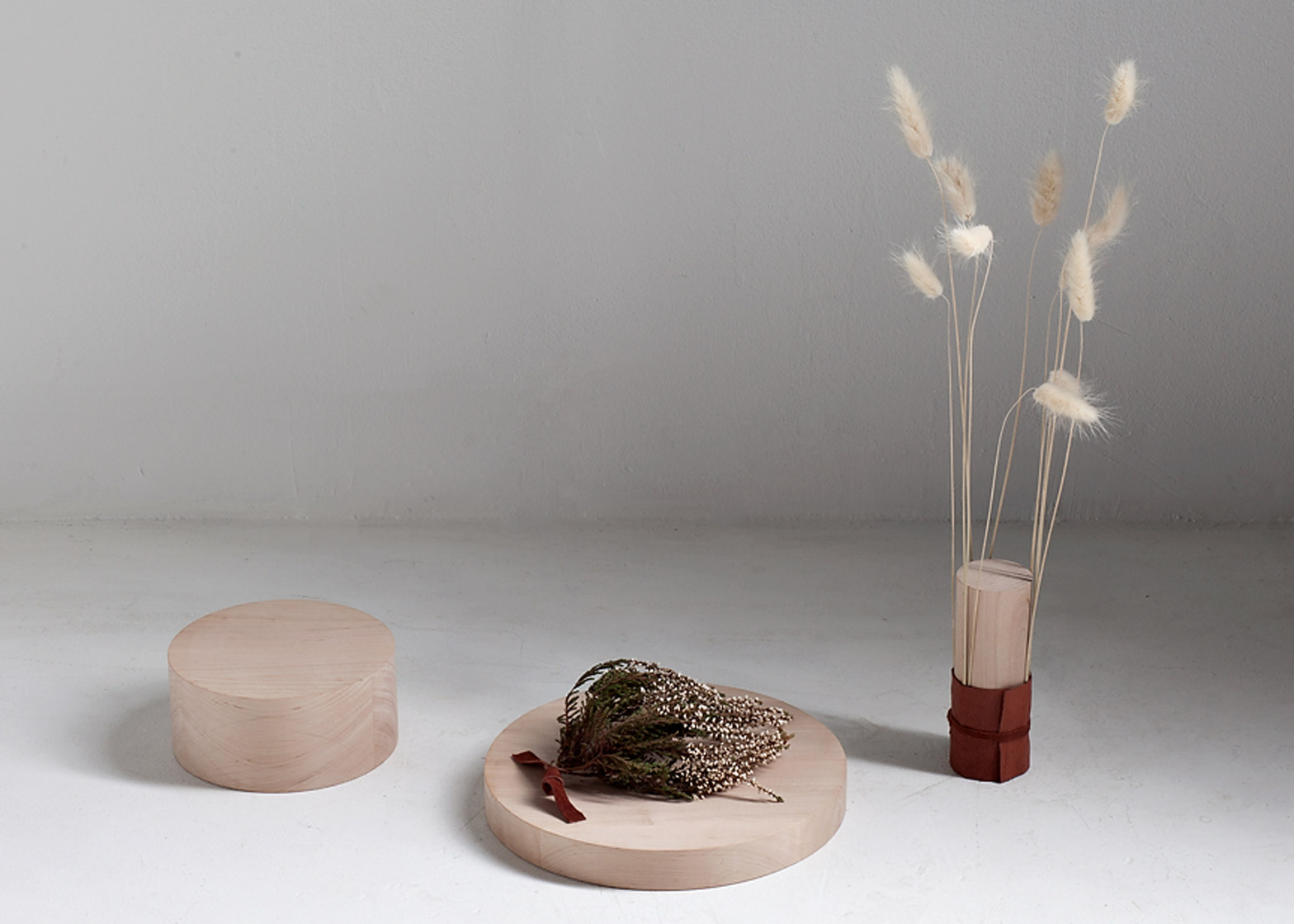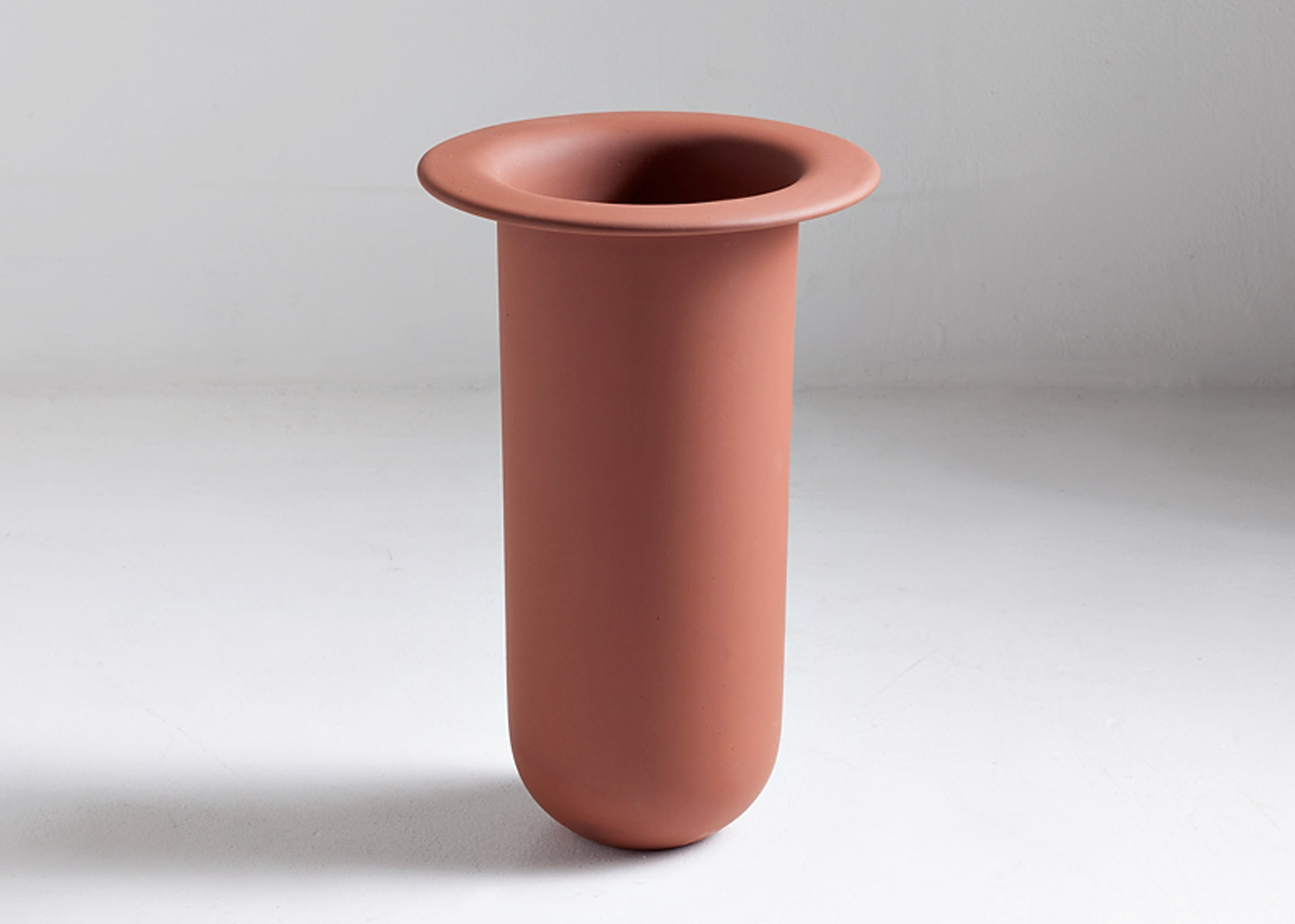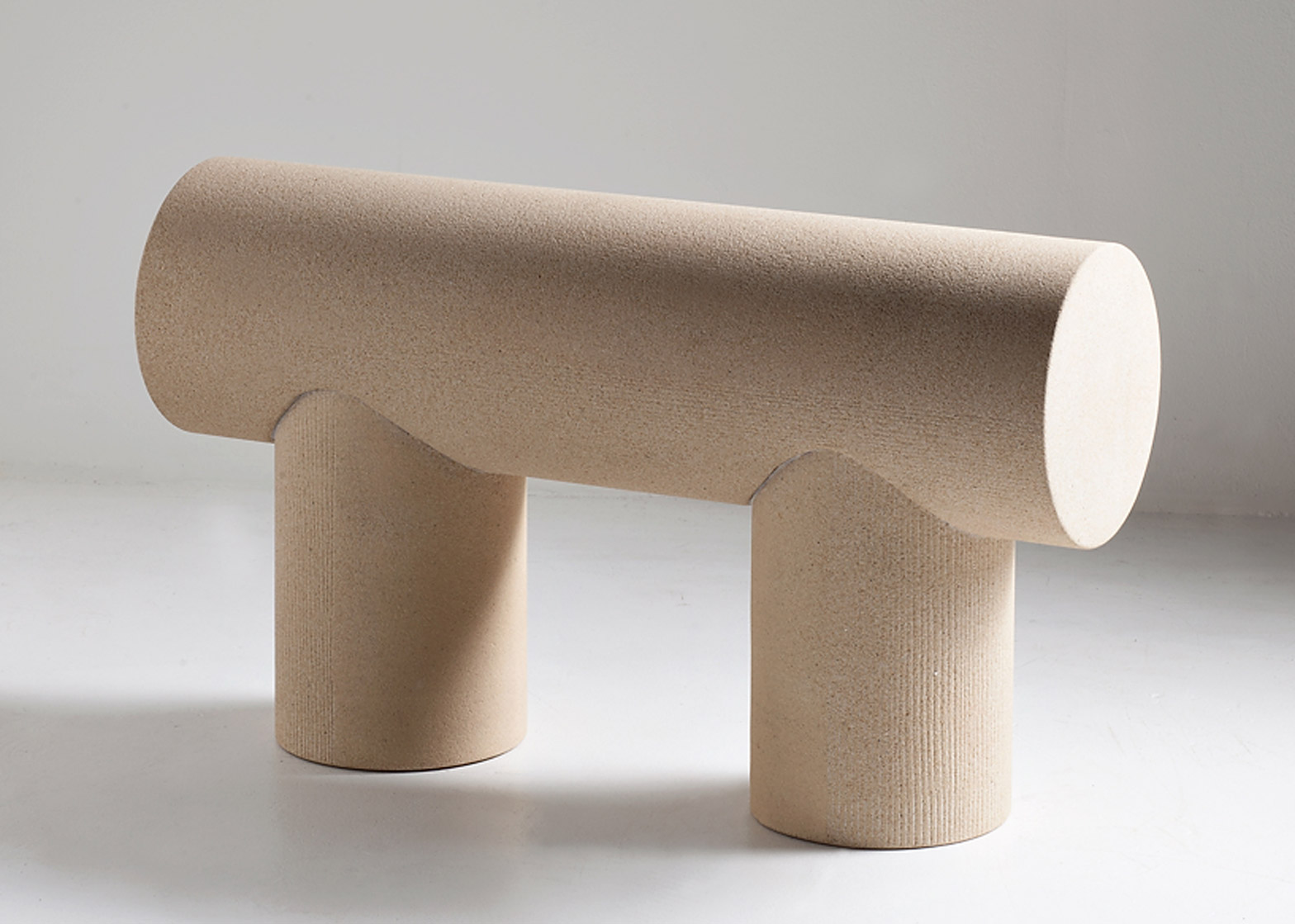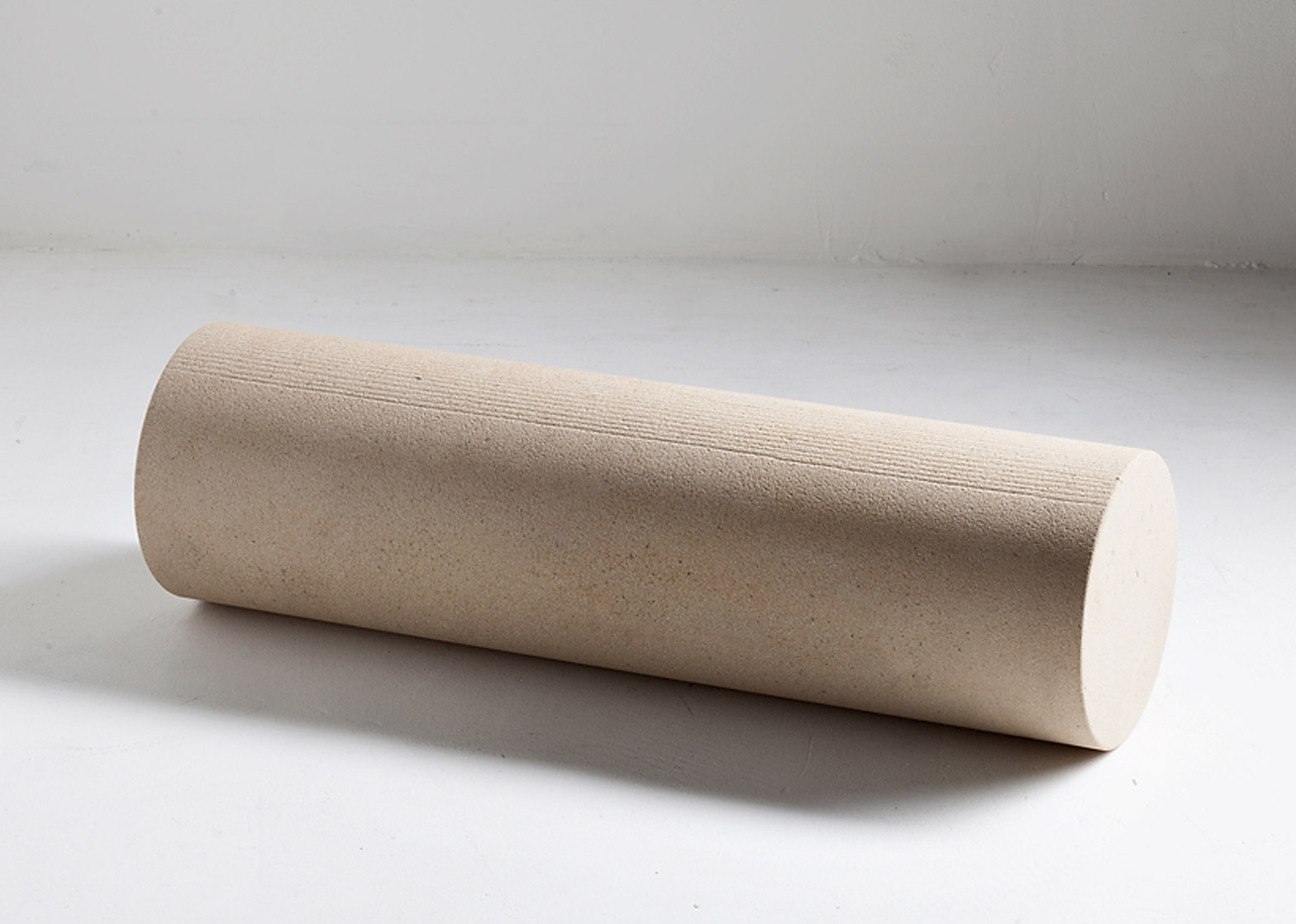Milan 2016: Scottish designer Nick Ross researched Roman accounts of his country's indigenous Caledonian people and used the findings to create a collection of furniture and homeware (+ slideshow).
The Last of the Free pieces are based on historical texts and objects from the National Museum of Scotland's Roman and Pictish collections, and are designed to represent the way indigenous Scottish tribes were depicted by the Roman Empire.
"The project looks at the fictional narratives embedded in history and how these affect our current understanding of the past," said Ross, who works from a studio in Stockholm.
Pieces range from a tubular sandstone bench, which rests on column-like supports, to a circular table and stool made from the same material.
The collection also includes terracotta pots reminiscent of Roman urns, a double-sided circular mirror held in a sandstone base, and a looped wool rug. Ross used Alder wood to create a set of display trays and plates – a material that would have been used in house building at the time.
"The objects presented carry hints of the Caledonian culture, yet contain a certain 'Romanised' aesthetic, as comment on the Roman influence on our understanding of these people and time period," explained Ross.
"By mixing storytelling with physical objects, it questions our current situation in which cultures are sacred, or that national identities are static and thus must be protected from outside influences," he added.
The designer has previsouly created a marble tealight holder for Danish design company Menu, and was the winner of Muuto's annual Nordic design award for his Tension lamp – a light that bends forward as if being held on a fishing rod.
The collection was shown at the Atelier Clerici exhibition at Palazzo Clerici during Milan design week 2016, which took place from 12 to 17 April.


